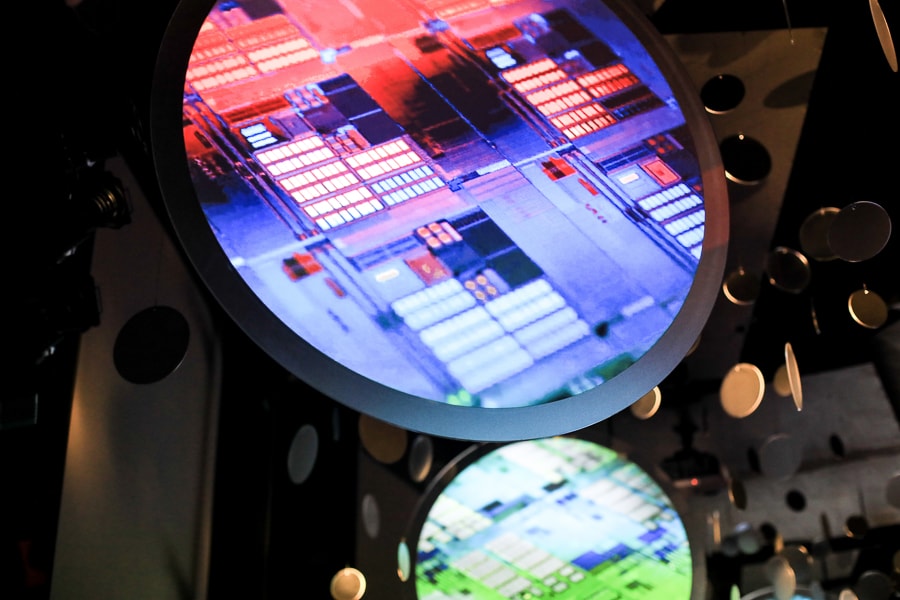
Why isn't Apple worried about Taiwanese chips?
US and Europe talk incessantly about making more of the world's advanced computer chips anywhere other than Taiwan, which they consider vulnerable to Chinese invasion or influence. But Apple doesn't seem so worried. For years to come, the iPhone maker has planned to continue relying on chips made largely in Taiwan
 Images of semiconductor wafers at the Taiwan Semiconductor Manufacturing Co. (TSMC) Museum of Innovation in Hsinchu, Taiwan, Jan. 11, 2022. TSMC reported a sixth straight quarter of record sales, buoyed by unrelenting demand by Apple Inc. and other customers for chips produced by the worlds largest foundry.
Image: I-Hwa Cheng/Bloomberg via Getty Images
Images of semiconductor wafers at the Taiwan Semiconductor Manufacturing Co. (TSMC) Museum of Innovation in Hsinchu, Taiwan, Jan. 11, 2022. TSMC reported a sixth straight quarter of record sales, buoyed by unrelenting demand by Apple Inc. and other customers for chips produced by the worlds largest foundry.
Image: I-Hwa Cheng/Bloomberg via Getty Images
U.S. and European officials talk incessantly about making more of the world’s advanced computer chips anywhere other than Taiwan, which they consider vulnerable to Chinese invasion or influence. They’re on a mission to make more chips in the U.S. and Europe and want to spend taxpayer dollars to do so.
Apple doesn’t seem so worried. For years to come, Apple has planned for devices rolling off assembly lines to continue relying on chips made largely in Taiwan.
Apple has a track record of bending global technology manufacturing to its will, and the company has lobbied for more computer chips to be made in America. But Apple and other big buyers of chips do not seem to have made it a priority and are not seriously using their influence over suppliers to speed up the building of chip factories in the U.S., Japan or Europe.
“The industry is not raising this as something that they need to see some action on immediately,” said Brett Simpson, a computer chip specialist and partner at the investment firm Arete Research.
The apparent disconnect between Western governments and the biggest buyers of chips, like Apple, raises a question for both companies and policymakers: Who is right about the urgency of the economic and geopolitical risks of concentrating chip-making in Taiwan — the people who need votes or the companies that vote with their wallets?
©2019 New York Times News Service







